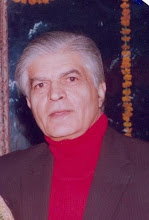The
esophagus is a muscular tube fixed at its upper end to the cricoid cartilage
and at its lower end to the diaphragm. This provides it transverse and
longitudinal mobility, this mobility allows peristaltic wave to carry the bolus
and this mobility also allows of intra thoracic organs to displace the
esophogus without altering its food carrying functions.
The
tube is lined by sqaumous epithilum with no keratin layer the submucosa
contains elastic and fiberous tissue this forms the lamina propria the
strongest and dependable layer for stitching in all surgery of esophagus.
The lymph flow is not segmental and the submucouslymph plexus allows the lymph
to flow long distance up and down, thus upper end cancers may show involvement
of superior gastric glands and lower end carcinomas may show mediaitinal glands
1.1 PHYSIOLOGY
The upper end of the oesophagus acts as a sphincter (UES)
and is
about 3 cm. in length and has a intraluminal resting
pressure of
20-60 mm of Hg.
- With the act of
swallowing this sphincter relaxes for 0.5 to 1
second as
the bolus enters the
oesophagus the sphincter
contracts and peristaltic waves of the oesophagus
propel the
bolus to the
lower sphincter (LES)
- This (LES) is the last 3 to 5 cm of the oesophagus
that acts
as a
sphincter though there is no demonstrable
anatomical
structure like a
sphincter.
- This zone of the
oesophagus develops a pressure of 10-20 mm of
Hg and
prevents regurgitation of stomach contents into
the
oesophagus.
Swallowing
physiology
At the end of mastication the semisolid bolus is pushed by the postenor
part of the tongue into the posterior oropharynx.
The soft palate
(SP) rises to close of the opening of the neso pharynx. The hyoid and larynx
move upward and the epiglottis classes of the larynx. These tow (SP+E) close of
the nasal air passage and the larynx. The bolus is helped on its way towards
the upper opening of the esophagus by the elevation of larynx.
The UES relaxes
and the contractions of pharyngeal constrictors push the bolus into the
esophagus. During the swallowing the breath is held. Further progress of the
bolus is through the peristalsis of the esophagus.
Any questions be sent to drmmkapur@gmail.com
All older posts are stored in archives for access and review.
Visitors that follow may contributions to the site.
To create consumer/provider engagement visit www drmmkapur.blogspot.com
www.otmanage.blogspot.com


No comments:
Post a Comment